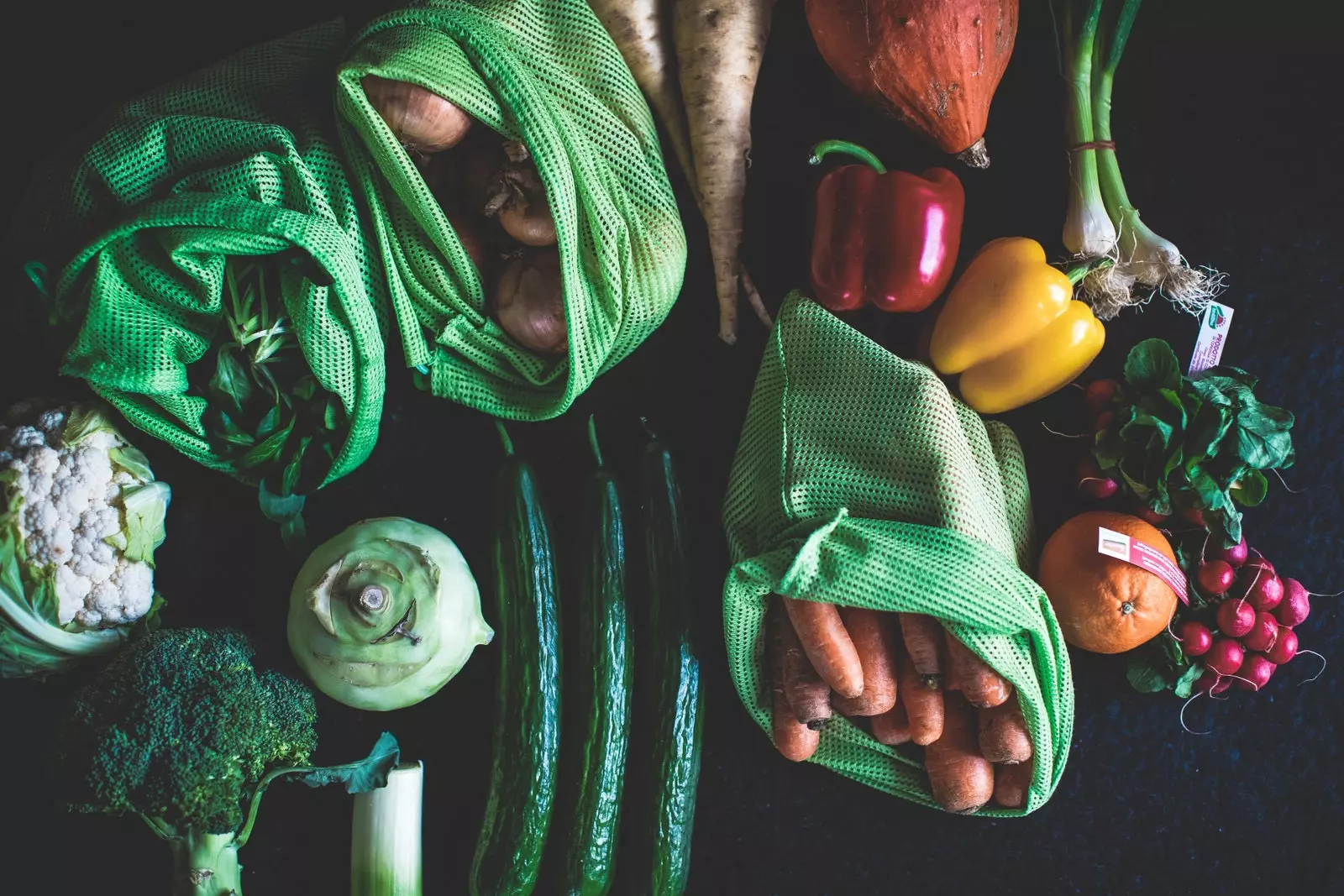
Say goodbye forever to plastic bags.
A plastic bag is distributed in the supermarket to end up in your home and, shortly after, in a garbage can. The question is whether it is the appropriate container or not. On this last case, this bag possibly reaches places like the so-called seventh continent of garbage or somewhere in the ocean where a turtle mistakes it for plankton. One last bite and shores dotted with tragedy because of a plastic bag that you have used for 12 minutes but that takes between 500 and 1000 years to decompose. Is it worth it?
“Most of the packages that they take hundreds of years to degrade, they have an ephemeral useful life. This is the case of plastic bags, which have a useful life of 15 minutes but take more than 100 years to degrade. If we add to this that we use a new one every time, it simply has no head or tail,” Tania Montoto, a marine researcher at the University of Las Palmas de Gran Canaria and an activist at Ben Magec-Ecologistas en Acción, tells Traveler.es. “Just as there are technological solutions to design durable materials, innovation in materials that are sufficiently resistant and much more sustainable also exists and it should be exploited more”.
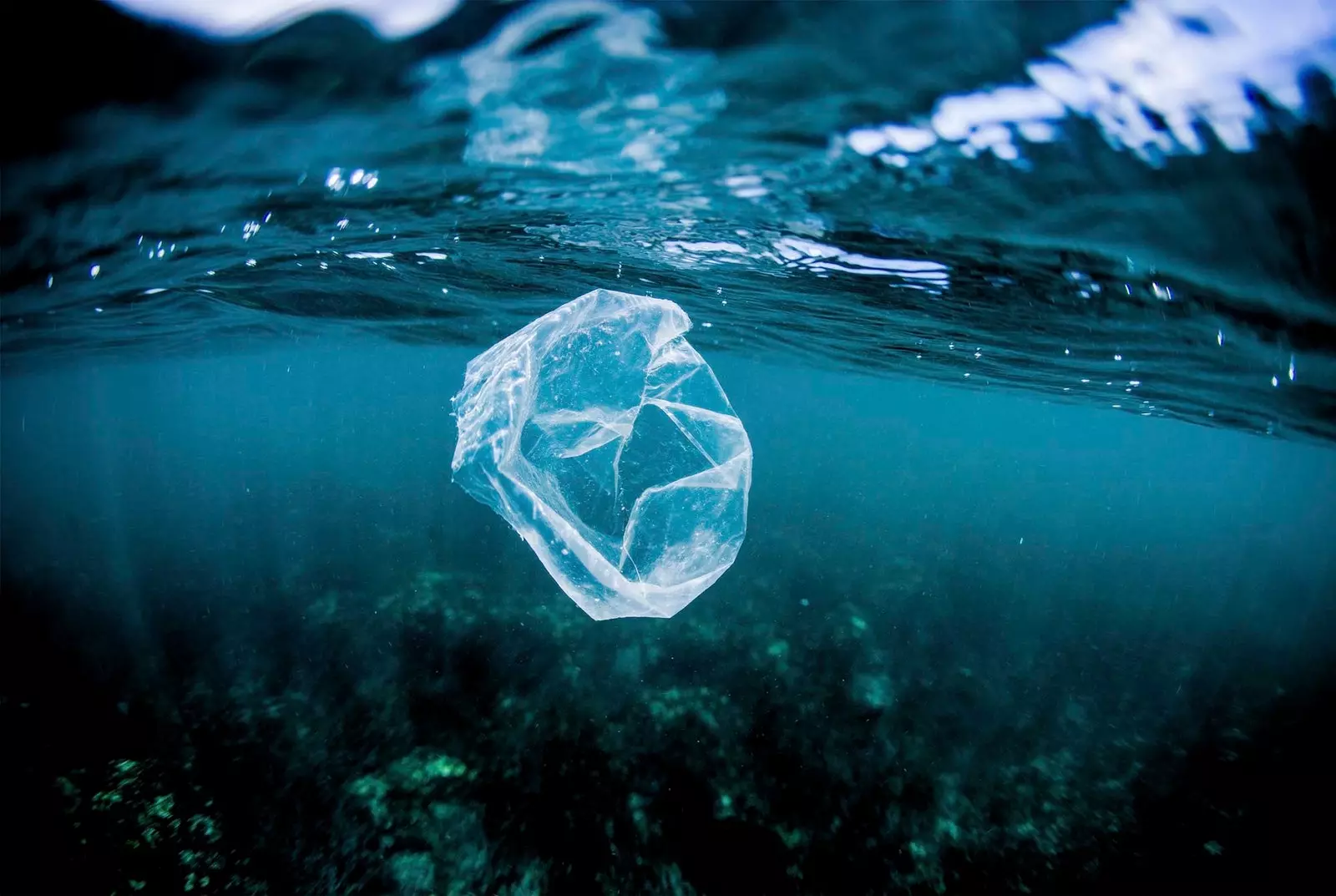
A plastic bag floats over a coral reef in Costa Rica
It is estimated that up to 500,000 million plastic bags are used around the world each year (ten million per minute), which they claim the lives of up to 1000 turtles a year, to mention just one example. As far as Spain is concerned, despite the timid progress made over the last decade, there is still 180 plastic bags are used per inhabitant per year, which is equivalent to using a bag every two days.
In a world that it needs new alternatives (and habits) that allow an ecological transition as firm as it is necessary, creativity is at the service of many countries that have discovered new substitutes for plastic bags in the bowels of their environment.
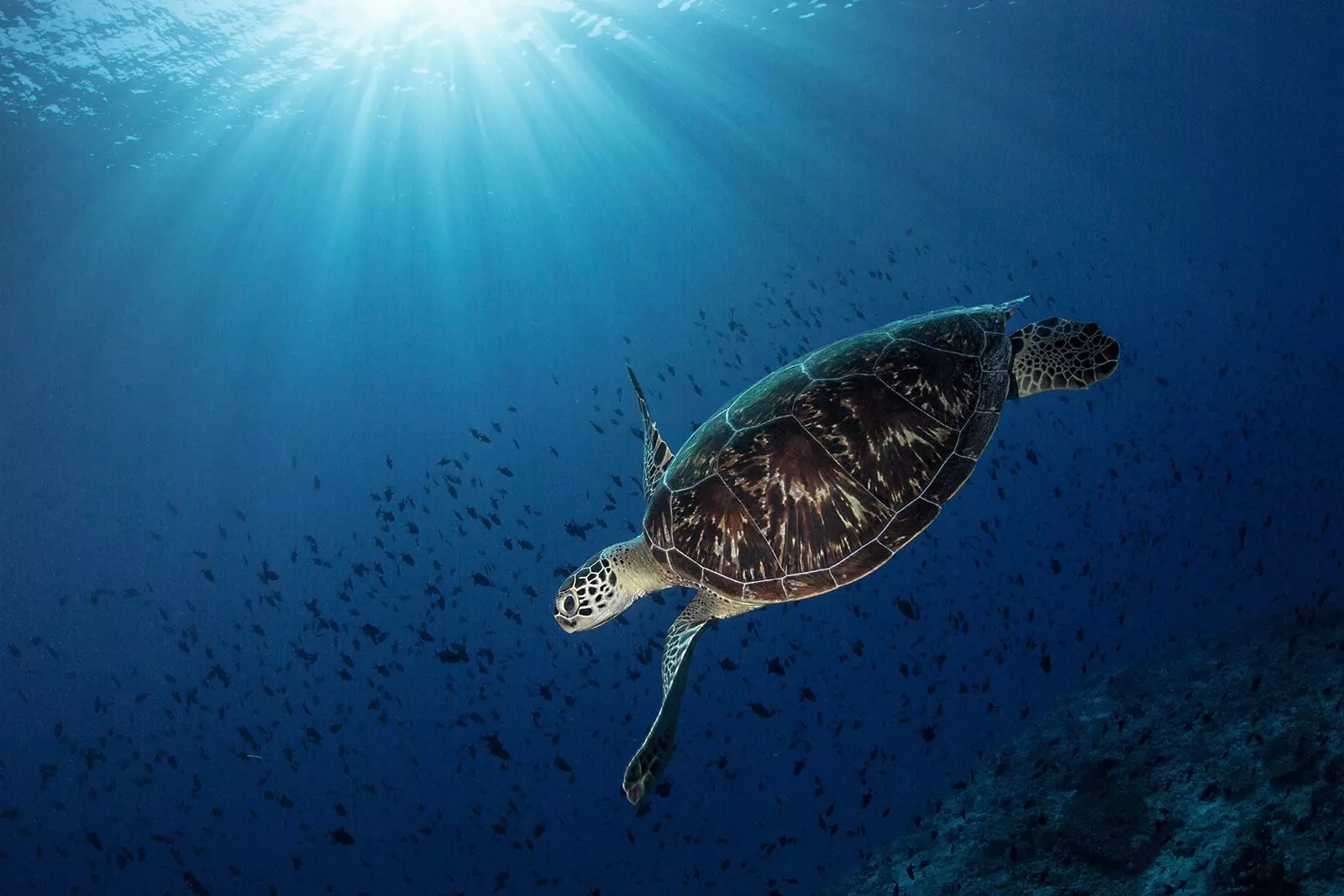
Turtles are one of the biggest harmed by plastic bags.
THAILAND AND VIETNAM: BANANA LEAVES
Banana leaves always seem tropical and exuberant to us, but few know that it is a unique sustainable ally, especially in some Asian countries. At least, this is what Thailand or Vietnam demonstrate, where various supermarket chains such as Rimping, in Chiang Mai, or Saigon Co.op, in Ho Chi Minh, began to implement last year the use of these leaves as wrapper for different fruits and vegetables. An ally that not only reduces the consumption of plastic bags but, according to the customers themselves, makes them want to buy more healthy food. #PutABananaLeafInYourLife
BAJA CALIFORNIA, MEXICO: SEA SHELLS
The combination of natural fibers with biodegradable resins is found on the coast of Baja California at an unexpected ally: seashells. This has been proven by the local company Biobreak, which uses resin from these recurrent ones from our coasts combined with rice and avocado fibers to create plastic bags, among other objects.
The reason is simple: use nature itself to return it to the sea through a shorter and organic biodegradable process. Somewhere, thousands of turtles, ecosystems and the occasional mermaid thank you.
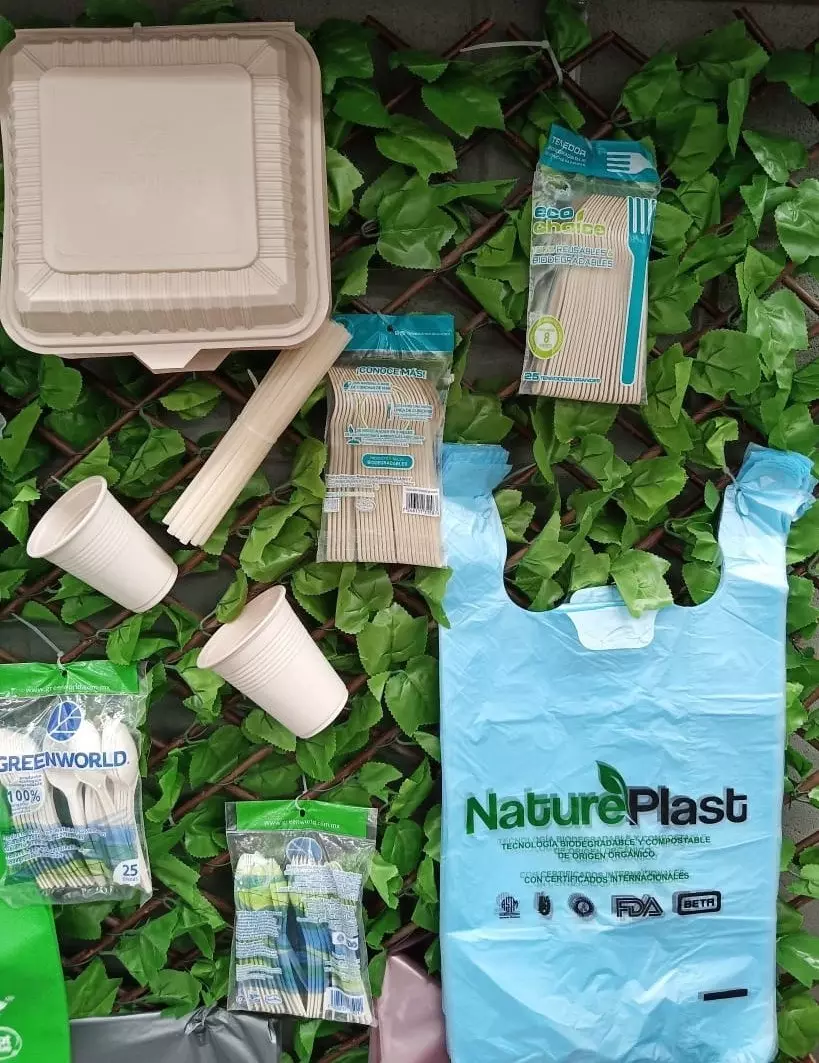
This is how Biobreak's sustainable packaging is.
MEXICO: CACTUS
In addition to the achievements made in Baja California, last year Sandra Pascoe, professor of Chemical Engineering at the Universidad del Valle de Atemajac (Mexico) developed a alternative to plastic from nopal cactus juice whose elaboration is only 10 minutes and its degradation process barely exceeds a month. An achievement still in the process of consolidation as the Mexican country promotes the reduction of plastic and whose intention is clear: “If this plastic reaches the sea, it is most likely that fish or other marine life would eat it, and it would cause them 'no harm', assures Pascoe.
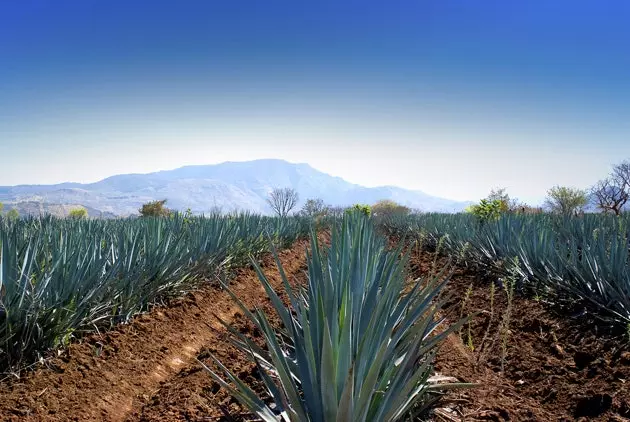
Agave fields in Tequila
GUATEMALA: MAXAN LEAF
If you can wrap the famous Guatemalan tamales with maxán leaves, why not do it with other products? This was the same question the student asked himself Abdías Ixchajchal, who last year promoted the use of this native material to create different dishes and bags in the Totonicapán area. An initiative parallel to the prohibition by the Guatemalan government of the use of plastic bags in 17 municipalities of the Mayan country.
COSTA RICA: SUGAR CANE FIBER
Consolidated as one of the most natural and environmentally aware countries, the nation of "Pura Vida" intends to completely eradicate the distribution of single-use plastic bags by 2021. A deadline before which numerous companies have rushed to weigh alternatives based on local components such as potato starch, natural wax or sugar cane fiber.
One of the most pioneering companies is Avani, which has developed plastic bags that could well pass for those we all already know and whose secret lies in **a biodegradation process of a maximum of six months. **
**ANTIGUA AND BARBUDA: POTATO STARCH **
Latin America, and especially the Caribbean, have become the main engines for a sustainable revolution from the alternative use of its resources as substitutes for plastic.
Another good example is Antigua and Barbuda, two paradisiacal islands where potato starch, among other components such as sugar cane or bamboo, has become main ally to replace plastic bags, withdrawn from large stores in the island nation in 2016. Only during the first year of this initiative, the decrease in plastic consumption was 15.1%.
INDIA: SARIS
When we think of India, words like pollution, garbage and filth come to mind. In fact, the country of curry was not only the fifth most polluted in the world in 2019, but also produces up to 26,000 tons of plastic per day. However, in a nation as gigantic as that of the Taj Mahal, there is also room for many initiatives (without going any further, the state of Sikkim is the first ecological in the world) in addition to other habits such as using the colorful saris of Indian women as a shopping bag.
One more alternative to "stay at home" that coincides with the brilliant idea of different associations in Jaisalmer, a city in the state of Rajasthan, where neighbors were asked for a couple of unused saris to make recyclable bags focused on merchants and ranchers.
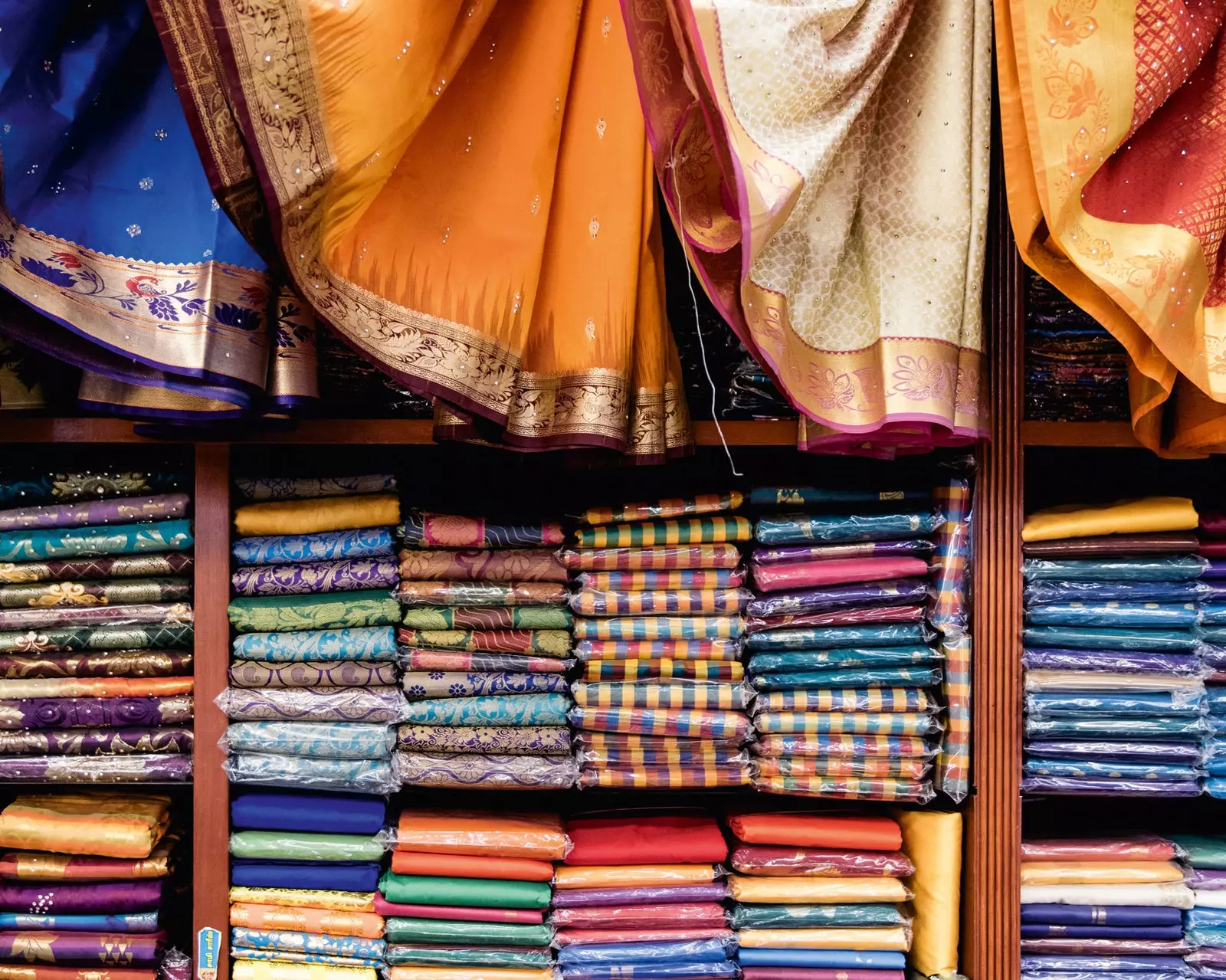
Sarees shop in Brickfields, Little India.
BALI: CASSAVA STARCH
Ten years ago, biologist Kevin Kumala returned from the United States to Bali, his native island, with the intention of surfing and rediscovering his land. Nevertheless, when he arrived at his favorite beach he found mountains of plastic flooding that ancient paradise. This is how he decided to start the adventure of using cassava starch as a material for a collection of bags and other biodegradable products encouraged by a viral video of Kumala himself drinking the bag dissolved in water during a TED talk.
Today, these bags have become an increasingly accepted alternative, especially at a time when Indonesia has consolidated its strategy to **reduce 75% the dumping of plastics in the ocean by 2025.**
